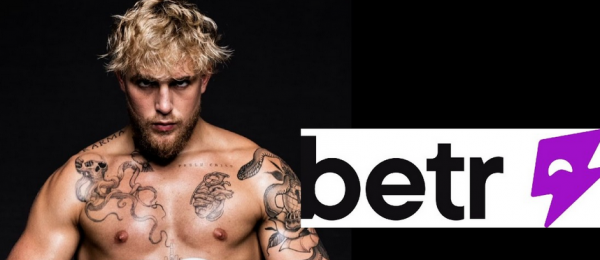Jake Paul Introducing Young People to Sports Betting Through YouTube, BetR Integration Claim Critics
He's not just a YouTube sensation and a boxer but is co-founder of a new sports betting site that focuses on so-called microbetting, widely thought of as impulse betting that allows for small wagers on plays occurring as the game is taking place.
BetR is Jake Paul's baby. Paul's followers are in the millions and a significant number of them are under the age of 21.
Paul suffered his first loss in seven fights to Tommy Fury on Sunday.
BetR was already under the microscope with Massachusetts regulators.
“I have a lot of concerns about the social media audience,” Massachusetts Gaming Commissioner Eileen O’Brien said last month before she cast the only vote against a temporary gaming license for Betr, which ultimately gained approval to operate in the commonwealth with a . 4-1 vote.
O’Brien asked how Paul’s audience fits into that strategy and whether Betr was “priming them to jump into” sports betting when they turn 21.
A Betr executive told O’Brien the “overwhelming majority” of its social media followers are over 21.
“That’s who we’re always marketing, featuring, targeting to in everything that we do on the Betr channel,” said Jake Strasser, head of content strategy.
Dan Monk of WCOP questions Ohio's claim it will prevent targetting sports betting advertisements to young people.
State law does not define what it means to "target individuals" with advertising and gambling companies are not required to verify that social-media followers are over 21, Jessica Franks, spokeswoman for the Ohio Casino Control Commission, tells WCOP.
“Some of these individuals may see a sports gaming advertisement as a result – just as they may see one on television or hear one on the radio,” Franks said.
Ohio has previously cracked down on sites that they say have deliberately targetted college campuses. More specifically, Barstool Sports had already been fined by the OCCC even prior to launching sports gambling in the state.
The $250,000 fine was levied on the company after it was found to be promoting its upcoming launch via a live show at the University of Toledo.
The state's policy states that ads are banned on college campuses “except for generally available advertising, including television, radio, and digital advertising.”
Ohio for Responsible Gambling points out that "youth are being exposed to sports betting in Ohio despite not being allowed to engage in it. Advertisements for betting apps now have a regular presence on the airwaves during sports events".
They cite studies showing that children who are exposed to gambling when they are young are four times more likely to develop a problem with gambling.
- Gilbert Horowitz, Gambling911.com
















